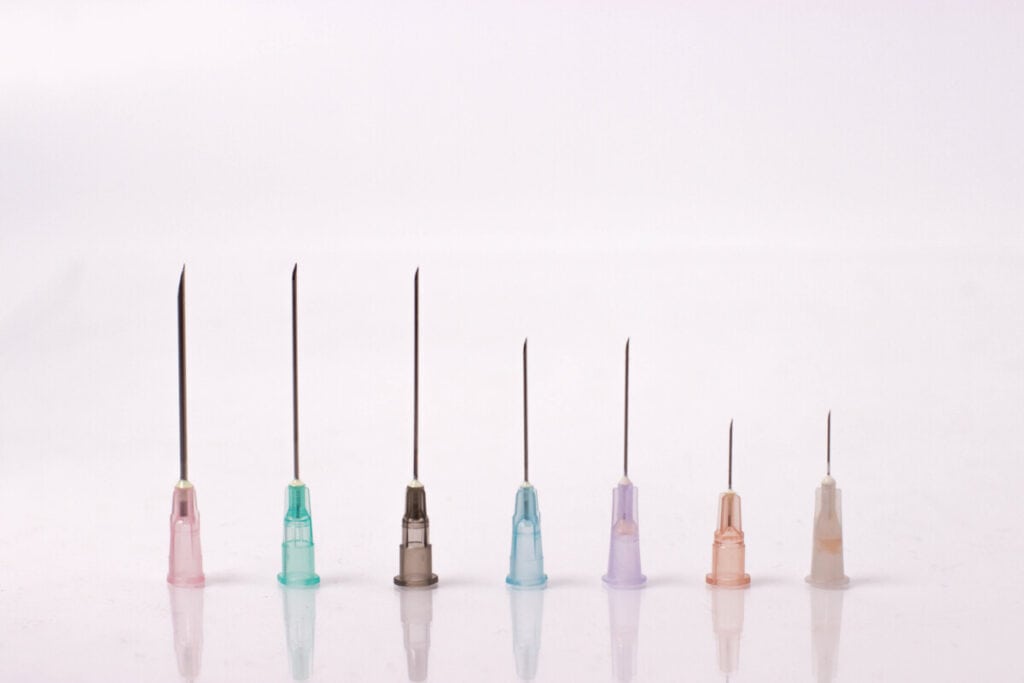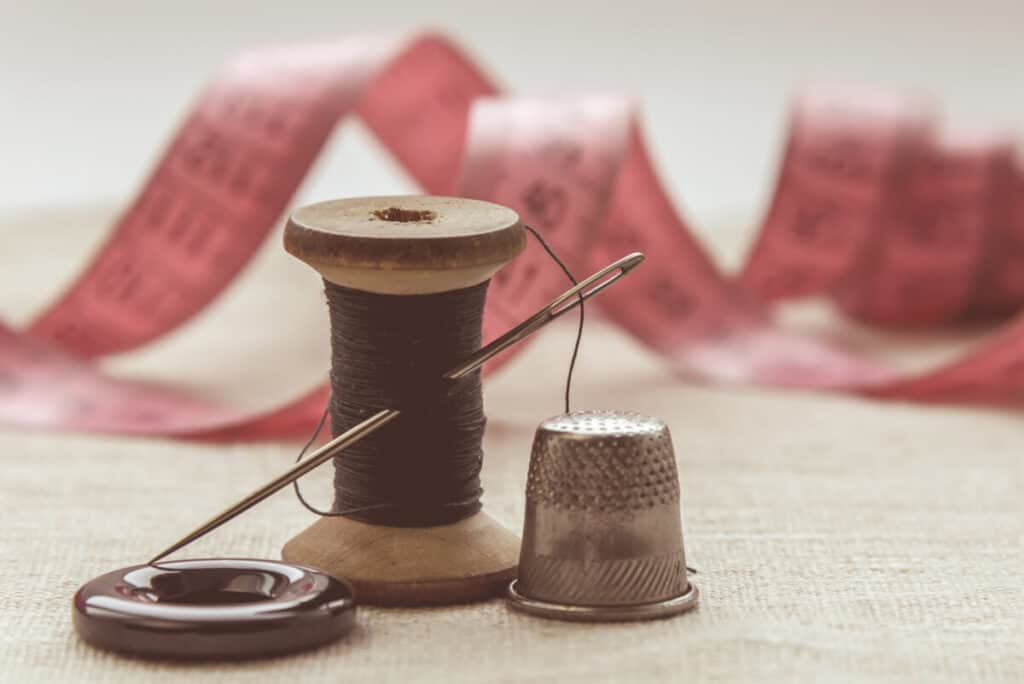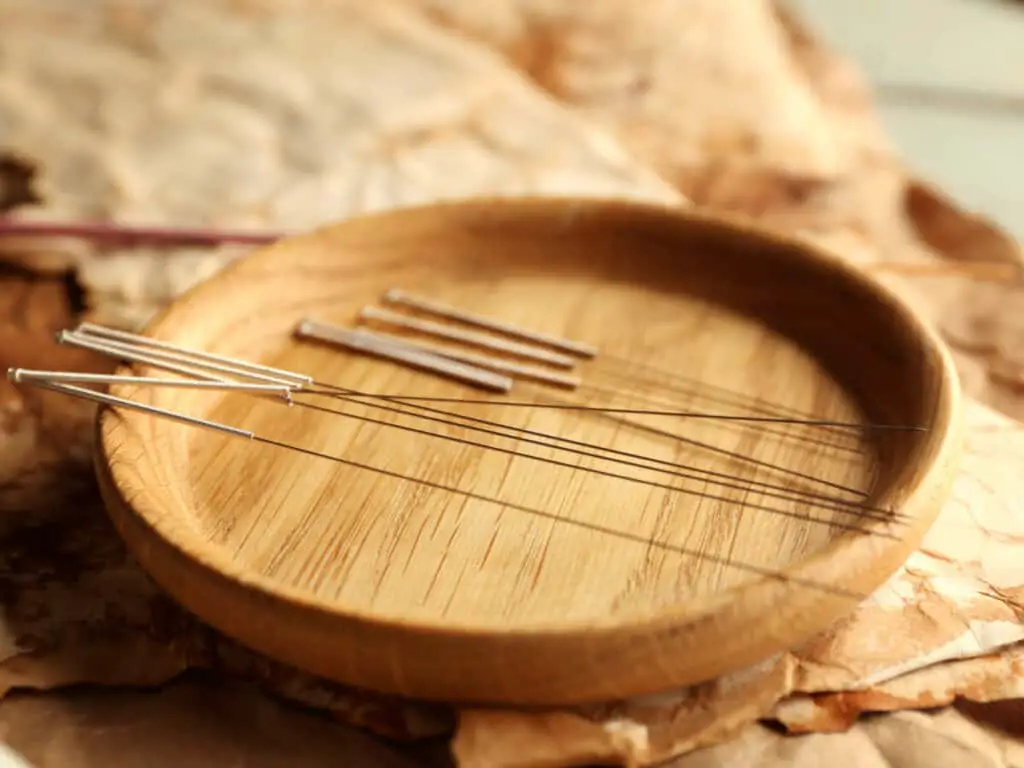
Needles, while helpful, can be a dangerous household tool. Whether you own needles for insulin shots or sewing essentials, it is important to know how to properly dispose of needles for the safety of yourself and others.
To properly dispose of a needle, place the object in a disposable container. This includes milk jugs, laundry detergent bottles, or plastic containers. Place this container in the household trash. Do not recycle or throw it away in the toilet. Refer to the local state waste agency for details.
To understand more about what kind of products fall into this category, details for injury, and additional instructions, continue reading below.
What are Sharps?
Sharps are devices with sharp points that can cut the skin. Sharps refer to needles, syringes, auto-injectors, infusion sets, blades, scalpels, and other sharp materials. Sharps also refer to crafting supplies with a sharp point such as sewing needles. (Source)
For federal regulations, government and medical advice refer to needles as sharps. If a needle’s point is so small, why do we need to dispose of this material properly? What is the importance?
A needle or sharps must be disposed of properly because of the way trash or waste is handled. Medical or household waste goes from person to person before it makes its way to a landfill. Because of this, someone can be poked by a needle or sharp item without knowing there was anything sharp in the bag. This is incredibly dangerous.
Another reason why it is so important to dispose of sharps properly is because of the risk of Hepatitis B (HBV), Hepatitis C (HCV), and Human immunodeficiency virus (HIV). These are the most concerning blood viruses that could be transferred from needles.
How to Treat a Percutaneous Injury
The number of sharps injuries per year in the United States is approximately 385,000. This includes contaminated or sterilized needles and is an average of over 1,000 injuries per day. So, it is important to be prepared! (Source)
A sharps injury, otherwise known as a percutaneous injury, is an incident where a needle harms or penetrates the skin. If you get a percutaneous injury while disposing of sharps, there are specific steps you need to follow because this type of injury can be extremely costly, especially after a needle has been disposed of.
- Encourage the wound to gently bleed without any outside pressure. This is best done under running water.
- Use plenty of soap to make sure the affected area is sterile. Do not suck or scrub the wound while washing it. Rubbing alcohol or hand sanitizer is also recommended.
- Dry and cover the affected area with a waterproof bandage, plaster, or dressing. Seek immediate medical attention if needed to fight off possible infection depending on the accident. (Source)
Because sharps can be so dangerous and cause percutaneous injuries so easily, there are specific ways to dispose of needles used for medical purposes. This also applies to home, wellness, and recreation needle purposes.
Sewing Needles

The most commonly seen household needle is the recreational sewing needle. Even when these needles are dull or broken, it is especially important to be cautious with their disposal because they are so common. The right amount of pressure can cause serious injuries.
The best way to dispose of a sewing needle is to put it in a like size plastic, sturdy container. You can reuse the container the needles came in, a mint tin, toothpick container, old peanut butter jar, spice container, film containers, medication bottle from the pharmacy, or other small, disposable containers.
If a plastic bottle or container is not an option, you can weave pins and needles into cardboard or fabric squares. (Source)
Medical Needles
For medical purposes, hospitals and care facilities will have plastic containers specifically created for disposing of sharps. These are also located in school science and laboratories. These containers are plastic but are thick in width so these professional needles cannot easily puncture the box. Never put medical needles in glass bottles or paper cartons.
Acupuncture Needles

Although relatively thin and unintimidating, acupuncture needles must be disposed of properly. The process is the same as sewing needles, except acupuncture needles generally come in packs.
To dispose of them properly, place sharps into a resistant plastic container such as a detergent or milk bottle. After putting the lid back on, tape the container shut. These sharps should not be recycled, even if the container is. This is because small sharps cannot be recycled and are dangerous to employees. (Source)
Needle Clippers
If there is no safe sharps disposal trash or plastic container, then needle clippers may be the best solution. Needle clippers are FDA-cleared products that cut and store the sharps cut. This product can hold up to approximately 1,500 needles.
After needle clippers are used, sharps can be disposed of in the trash. To dispose of the sharps inside the needle clippers, look for your specific state or local laws concerning sharps disposal. The best option is to find an official sharps trash.
Needle clippers can be purchased at major retailers, pharmacies, and medical supply stores. Because needle sizes vary, do your research before purchasing to make sure the needle clipper device you buy fits your needs.
In the end, sharps are extremely useful but very dangerous to dispose of. They can severely harm others if not disposed of properly. If you work in a medical area, ask your employer where the sharps trash is located. If you are working on a craft and need to get rid of old sharps, purchasing needle clippers will probably be the easiest option, but you can also find another way to dispose of your old needles.
For budgeting purposes, place sharps in sturdy plastic or tin containers. In doing so, you repurpose the container. Never recycle these products as can be very dangerous, but check with local and state sharps regulations if disposing of needles is a regular occurrence.
To check local, state, and federal sharps disposal laws, Safeneedledisposal.org is the best place to start. This website lets users find specific instructions depending on the sharps object and waste regulations in the area.
Related Topics:
If you like the article above, here are some other similar articles you should check out!
Top Ways for Recycling Newspaper
